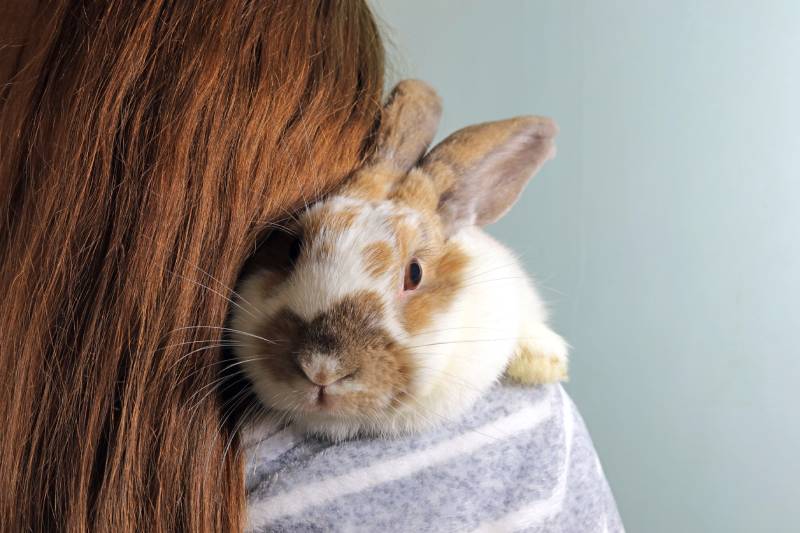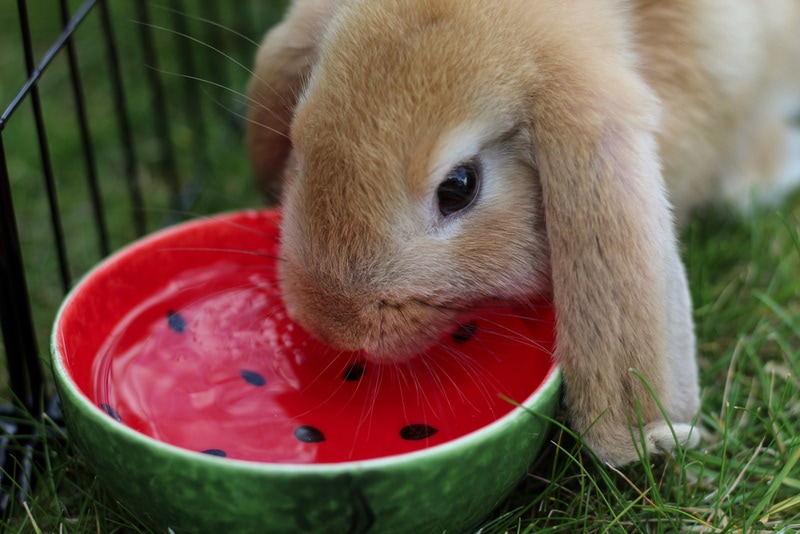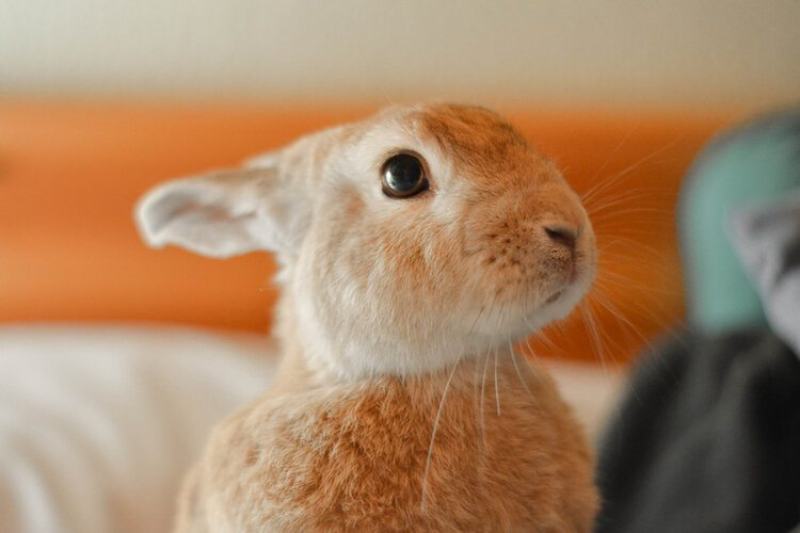Do Rabbits Have a Good Sense of Smell? Vet Approved Explanation & Facts
Updated on
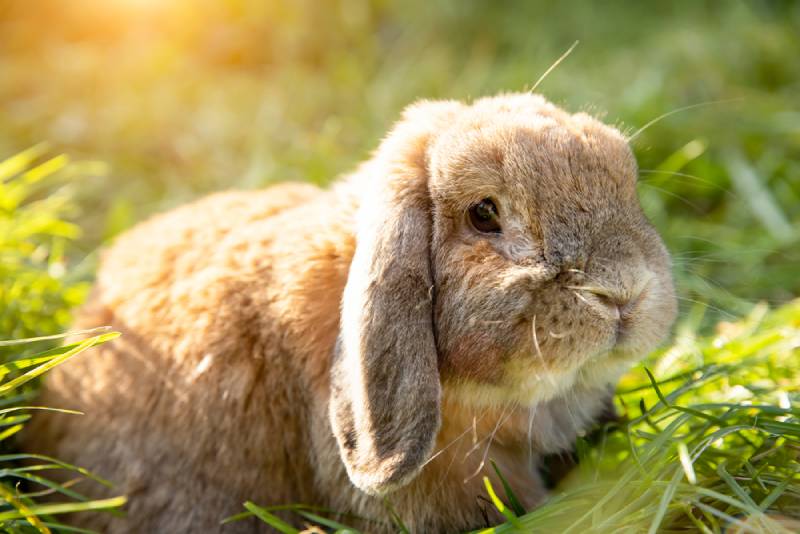
There’s no question that rabbits have pretty adorable noses. And with all of that wiggling action, it seems they spend a lot of time smelling everything. But have you ever wondered how well rabbits can smell?
Rabbits actually have an excellent sense of smell, and as prey animals, it is a critical sense for rabbits to alert them to the scent of any potential threats.
In this article, we’ll discuss everything rabbit nose related, so if you want to learn more about how the rabbit’s nose works, please read on!
How Does the Rabbit’s Nose Work?
Rabbits have 100 million olfactory receptors in their noses, and just to compare, humans only have about 6 million.1 This means the rabbit’s sense of smell is about 20 times better than ours! Plus, the section of the rabbit’s brain used for their sense of smell is proportionally much better than ours as well.
The internal structure of the rabbit’s nose allows the air that the rabbit breathes in to enter close to the nostril wall.2 When exhaling, the air flows through the middle part of the nostril.
This essentially allows the inhaled and exhaled air to move separately inside the nostrils, which helps the rabbit smell practically continuously.
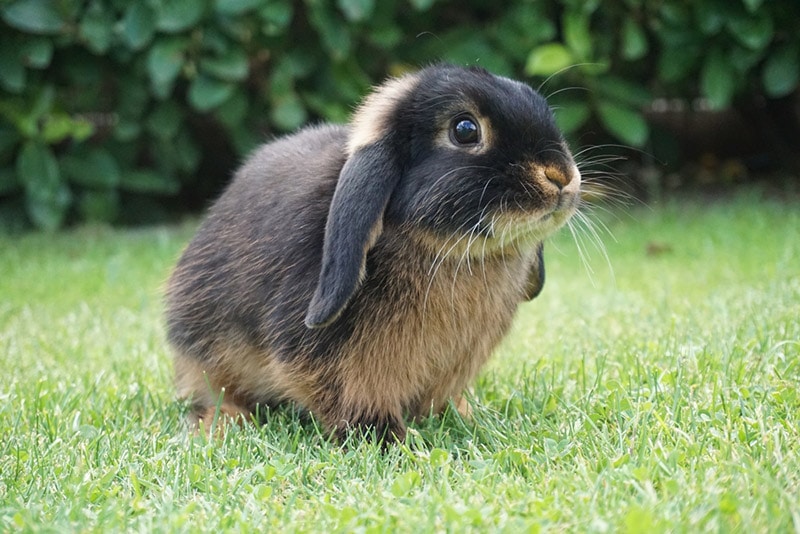
How Do Rabbits Smell Odors?
When the scent reaches those 100 million olfactory receptors inside the nostrils, they send signals to the brain, which are then interpreted. They also have something called an olfactory bulb, which looks a bit like a ball at the back of the nasal structure.
The olfactory bulb is packed full of sensory cells, which additionally send signals to the brain with information about very distinct scents.
Why Do Rabbits Twitch Their Noses?
Those adorable noses, which you’ve likely noticed, seem to twitch an awful lot! It’s also sometimes called nose blinking. Every time the nose twitches up, it opens the nasal passages wider, which helps to increase the airflow over the olfactory receptors. And, of course, more air means more scents for the rabbit to detect.
The faster and harder the nose twitches, the more on edge they are because they are attempting to gain more information from their environment quicker. This means if you notice your rabbit doing some serious nose twitches, they might be on high alert or stressed. If your rabbit is sleeping and there is a sudden noise, they will likely bolt upright and start nose twitching ferociously. They are trying to determine if there is a threat nearby.
Sometimes rapid twitching when the rabbit appears calm could mean they are curious and are gaining extra information about it. Happy and content rabbits also twitch and wiggle their noses all the time. Rabbits are capable of twitching their nose up to 150 times per minute, which is an integral part of a wild rabbit’s survival!
And a rabbit’s breathing rate jumps up during a nose-twitching session. Normal respiration rate is about 30 to 60 breaths in a minute but shoots up to 480 breaths per minute while sniffing! On the other hand, open mouth breathing is not normal in rabbits and is a sign of genuine respiratory emergency, so do not mistake it for sniffing.
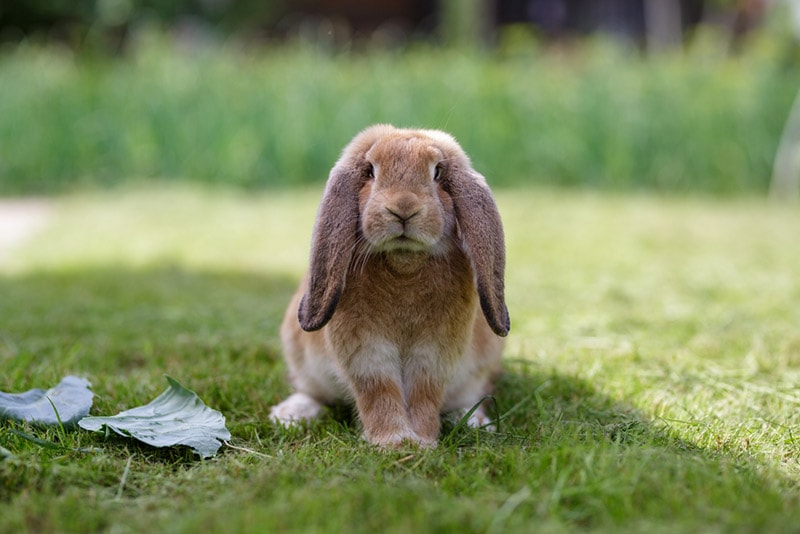
The Importance of the Rabbit’s Sense of Smell
A rabbit’s hearing is also a very important sense, and they use it interchangeably with their sense of smell, in order to spot any predators or disturbances in time.
Smelling a threat from far away gives them the opportunity to escape before it reaches them. And these two important senses work together – when they hear a noise, they sniff the air to gain information about the scent associated with that particular noise.
Rabbits also rub their chin on many things as a way of leaving their scent from the scent gland located there. Other rabbits gain information from this scent which helps with territorial issues and mating purposes. The rabbit’s sense of smell literally helps them to survive and thrive!
What Are Unappealing Scents for Rabbits?
With such sensitive noses, there are quite a number of scents that rabbits dislike and might even cause them stress.
- Predators: Any animals that are common predators of rabbits will definitely stress them out. This includes cats and dogs in the home and coyotes or foxes in the yard.
- Spicy: Anything strong and irritating, like chili powder, is unpleasant to rabbits. Ensure you cover these items, particularly if your rabbit is nearby.
- Onions and garlic: These food items have a strong odor that can even be a turn-off for us. The same may apply to rabbits, but we actually don’t know this for sure. Some rabbits may like it and even try to eat it.
- Lavender: Rabbits seem to dislike lavender. Because this scent is popular in candles and room sprays, you should avoid using these. And if you use a soap or hand lotion scented with lavender, consider finding something else – your rabbit will most definitely not want to be handled by you.
- Air fresheners and perfumes: These are more of a chemical smell that can irritate your rabbit’s nose and upper airway. Avoid using artificial/chemical scents on yourself and in your home.
What Are Appealing Scents for Rabbits?
These odors will probably not surprise you because they involve food and other things rabbits enjoy.
- Food: Just like any animal, rabbits love the smell of food. It may be something you’re eating but more likely fresh hay, grass, and veggies – the kind of food they usually enjoy eating, especially fruit!
- Roses: Sweet-smelling flowers like roses (but not lavender) will also draw rabbits, as well as other plants and flowers, such as chickweed, daisies, dandelions, nettles and many others.
- You: When your rabbit becomes familiar with your scent and has formed a bond, they may enjoy your scent as well. You might find them occasionally napping on your unclean laundry. But again, we don’t know this for sure.
Do Dogs Have a Better Sense of Smell Than Rabbits?
Yes, dogs actually have an incredible sense of smell that out-smells rabbits. Dogs have more than 220 million olfactory receptors in those noses compared to the rabbit’s 100 million.
Of course, the main difference is that rabbits are prey animals, and dogs are predators. They use those incredible noses to track down food and, of course, work in the service of humans.

Conclusion
Rabbits are certainly known for their excellent hearing ability, but now you know their sense of smell is quite powerful as well.
Rabbits use their sense of smell to detect threats but also to find food and determine if other rabbits are friends, foes, or ready for mating. And all that nose twitching is designed to provide them with all of the information they need to stay safe.
Featured Image Credit: RUl8let, Shutterstock


